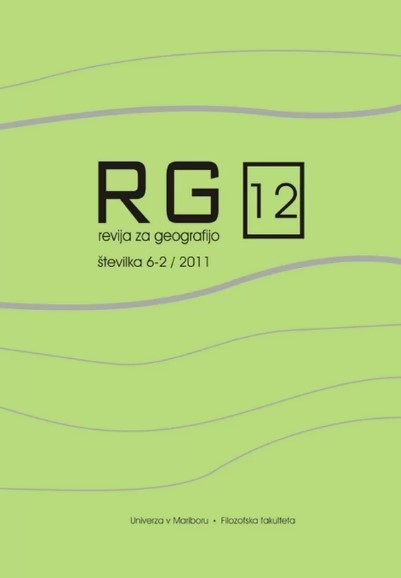Geographical marginality and social aspects of sustainability
DOI:
https://doi.org/10.18690/rg.6.2.3833Keywords:
geographical marginality, sustainabilityAbstract
Geographical marginality as a topic of systematic geographical study occurs in the last two decades since the International Geographical Union (IGU) formed first a Study group and then a Commission to cover this field of geographic research. There is no unique definition of a geographical marginality. In this paper we will briefly present our view of it, to establish a platform for the discussion on the role and importance of sustainability in research of geographically marginal areas. Sustainability will be taken into account in its broadest sense, not only in narrow economic. The main problem of geographically marginal areas and main source of their disadvantages is their insignificance that is in large part a consequence of their location far from centre. When dealing with marginality of an area or region the measures to ensure sustainable economic and social development is often in focus of researchers and developers attention. By some relevant examples from the literature we illustrate our views on how to ensure sustainability and what sustainability actually is.
Downloads
References
Binns, T. 2010: Making Development Work: Perspectives on community-based development in Africa. V: Geographical Marginality as a Global Issue, Vol. 2. Dunedin.
Buch, A. in Dixon, A. 2010: South Africa’s Working for Water Programme: Searching for win-win outcomes for people and the environment. V: Geographical Marginality as a Global Issue, Vol. 2. Dunedin. https://doi.org/10.1002/sd.370
Dixon, A. B., Hailu, A., Taffa, L., & Semu, T. 2010: Local responses to marginalisation: Human – wildlife conflict in Ethiopia’s wetlands. V: Geographical Marginality as a Global Issue, Vol. 2. Dunedin. https://doi.org/10.1080/00167487.2009.12094250
Freire-Medeiros, B. 2008: And the favela went global: The invention of a trademark and a tourist destination. V: The Global Chalenge and Marginalization. New York. https://doi.org/10.1016/j.geoforum.2008.10.007
Janc, M. 1999: Romi v Prekmurju in njihov odnos do izobraževanja. Diplomsko delo, Univerza v Ljubljani Pedagoška fakulteta. Ljubljana.
Leimgruber, W. 2004: Between Global and Local, Marginality and marginal Regions in the Context of Globalization and Deregulation. Aldershot/Burlington. https://doi.org/10.4324/9781351162722
Pelc, S. 1999: The marginality and marginal regions in Slovenia. V: Marginality in space - past, present and future : theoretical and methodological aspects of cultural, social and economic parameters of marginal and critical regions. Aldershot.
Pelc, S. 2009: Meje in marginalnost v Koprskem primorju. V: Razvojne priložnosti obmejnih območij Slovenije = Development opportunities of Slovenian border regions. Koper.
Pelc, S. 2010: Peripherality and marginality of Slovenian border areas along the Italian border. V: Geographical Marginality as a Global Issue, Vol. 1. Dunedin.
Plut, D. 2002: Teoretični in terminološki vidiki koncepta trajnostnosti/sonaravnosti. Geografski vestnik 74-1 , Ljubljana.
Downloads
Published
Issue
Section
License
Copyright (c) 2011 Stank Pelc

This work is licensed under a Creative Commons Attribution 4.0 International License.
